Be careful when booking your workshops, there are 5 parallel sessions in the morning and 4 in the afternoon (local time zone). W6A2 was rescheduled from afternoon to morning.
Please sign up for your options here.
| 1 | 2 | 3 | 4 | 5 | 6 |
|---|---|---|---|---|---|
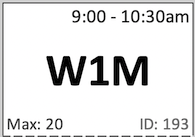 |
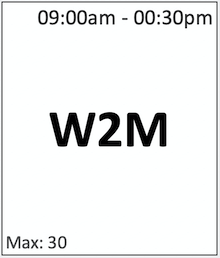 |
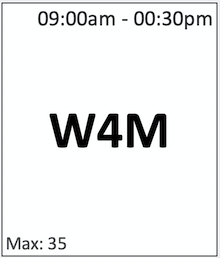 |
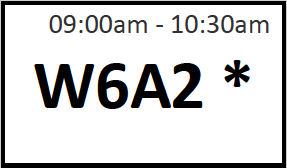 |
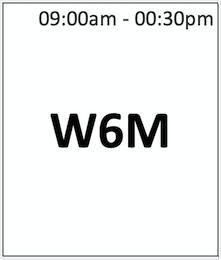 |
|
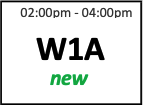 |
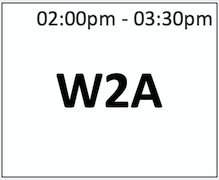 |
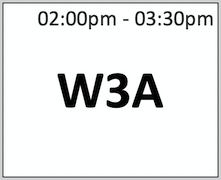 |
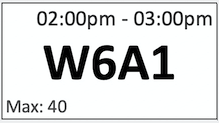 |
||
* Rescheduled to morning
Objective of this course is to gain comprehensive knowledge about the ERP Simulation Game (ERPsim), an innovative concept of interactive game-based learning and the acquisition of ERP knowledge using SAP S/4HANA.
The target group of the workshop are lecturers who are interested in applying game-based learning on the example of a real-life Enterprise Resource Planning (ERP) system. No preliminary knowledge about ERP systems is needed to take part in this workshop. The maximum numb er of participants should be 20.
The ERPsim simulation game is automating several business processes:
Using SAP S/4HANA, the team members have to produce goods on stock and interact with customers and vendors as they have to create purchase orders, pay delivered raw material, receive and deliver customer orders, and receive payment from their customers. Each group is competing against each other with the main objective to maximize profit. ERPsim provides lectures as well as team members’ extensive information about the financial status of their companies. By this way, the link between entrepreneurial decisions and the result in terms of profitability gets transparent for the participants.
Nilüfer Faizan studied Research on Teaching and Learning Master at TUM. Since March 2018, she has been working as a doctoral research associate at the Chair for Information Systems Boltzmannstr. 3, D-85748 Garching, Germany (e-mail: niluefer.faizan@tum.de) led by Prof. Dr. Helmut Krcmar at TUM. Her research interests are information systems education, Industry 4.0, curriculum evaluation, and playful learning.
Dr.-Ing. Matthias Utesch is with the upper vocational school ‘Staatliche Fachober- und Berufsoberschule Technik’, Bergsonstraße 109, 81245 Munich and the Technical University of Munich (TUM), Department of Informatics, Chair for Information Systems, Boltzmannstr. 3, D85748 Garching, Germany (e-mail: utesch@in.tum.de). He is a member of the Executive Committee of IGIP. He was a member of the Core Advisory Board of the EU Sixth Framework Programme/iclass. His main interests include IT-based learning, games engineering, and in particular the enhancement of the study skills at the interface between school and university.
Prof. Dr. Helmut Krcmar has been holding the Chair of Information Systems at the Information Technology Department of the Technical University of Munich (TUM) since October 1, 2002. He is the Founding Dean and Vice Dean of TUM School of Management Campus Heilbronn. He is member of the Information Technology Department, a secondary member of the Economics Department, and member of the “Carl von Linde-Akademie”. Since 2004, he has been a member of the board of the elite graduate program in “Finance and Information Management (FIM)” in the elite network of Bavaria, Germany. Since October 2003, he has been academic director of the ¡communicate! Program, since January 2004, he has been Scientific Director of the Center for Digital Technology and Management (CDTM) of the TUM. His research interests include information and knowledge management; engineering and management of IT-based services; piloting of innovative information systems in healthcare, environmental management, and e-government as well as computer support of cooperation in distributed and mobile work and learning processes. His book “Informationsmanagement” has seen six editions until now.
Return to OverviewThe aim of this session is to give participants insight into the requirements of publishing educational research work in engineering education journals with a specific focus on the IEEE Transactions on Education. It will cover the areas of work and types of papers typically considered in scope for the journal and will give guidance on what is typically expected of papers by reviewers.
The workshop will give an overview of the requirements and processes for publishing engineering education papers in peer-reviewed journals. It will provide advice on how to develop research, for example work presented at Educational Conference such as EDUCON, for submission to peer-reviewed journal. It will explain the typically issues that are highlighted during the peer-review process and discuss what reviewers are typically looking for submissions. Taking the example of the IEEE Transactions on Education it will discuss the process of submitting papers and give hints and tips to ensure that the process is as smooth as possible.
John E. Mitchell is Professor of Communications Systems Engineering in the UCL Department of Electronic and Electrical Engineering, Vice-Dean Education in the UCL Faculty of Engineering Sciences and Co-director of the UCL Centre for Engineering Education. Between 2012 and 2016 he was on secondment to the UCL Engineering Sciences Faculty office, where he led the introduction of the Integrated Engineering Programme. The team that led this major revision of the curriculum across the engineering faculty has recently been awarded the HEA Collaborative Award for Teaching Excellence (CATE). In 2009, he was awarded the UCL Provost's award for teaching and has published on curriculum development with engineering education. Professor Mitchell is a Chartered Engineer, Fellow of the Institution of Engineering and Technology (IET) a Senior Member of the Institute of Electrical and Electronics Engineers (IEEE), Member of the Board of Directors of the European Society for Engineering Education and Principal Fellow of the Higher Education Academy. He is currently Editor-in-Chief of the IEEE Transactions on Education.
Return to OverviewYou familiarize yourself with resources and tools available to all licensed users to improve your teaching process and the learning outcomes of your students.
This workshop is open to all educators interested in getting to know the MATLAB teaching environment. It is not necessary to have prior knowledge of MATLAB, but some prior experience with programming is helpful.
Max. number of participants: 30
Teaching with MATLAB
Dr. Sebastian Gross is a currently a team lead in the European academic customer success team at MathWorks. The team collaborates with educators and researchers to make them successful with MATLAB and Simulink. His topics include consulting university teaching projects, fostering innovation in research, and accelerating knowledge transfer from academia to industry. He is located in Munich, Germany. Furthermore, he is a lecturer at BadenWürttemberg Cooperative State University (DHBW) where he employs online-learning to teach computational thinking and programming skills to engineering students. Before joining MathWorks, he worked as a research scientist and teaching assistant at RWTH Aachen University, Germany. Sebastian holds a diploma degree in Electrical Engineering and a Dr.-Ing. (PhD) in Medical Image Processing, both from RWTH Aachen University, Germany.
Carlos Sanchis is a senior engineer at the MathWorks customer success team, where he's responsible for collaborating with academics in Portugal and Spain on curriculum and research initiatives.
He previously worked in data analytics, electronics R&D and power grid modeling at the Technical University of Valencia (UPV), Hewlett-Packard (now HP) and Iberdrola.
Return to OverviewPurpose of the workshop is to share the experiences of using interactive scripts with the audience. The design, technology and implementation of the scripts are presented. The opportunities for the typical science and engineering classes will be demonstrated by ‘hands on’ experiences.
The workshop addresses all educators, who are teaching in science, engineering or other STEM courses. The audience get ‘hands on’ experiences with the interactive scripts and will discussing the opportunities to use these tools in their classrooms. No previous knowledge is expected.
The use of smart interactive scripts can be considered as a valuable option to enhance the interactivity in the different courses of the STEM disciplines. The concept is to enable the students to perform calculations directly within a smart script, which complements the theoretical background with concrete calculations for problem solving. In addition, interactive graphs and charts can be included in the scripts enabling students to vary parameters and see how those parameters effects the results, resulting in a high simulative character. The interactive scripts are realised with the open source software Jupyter Notebook enabling to combine codes, graphs, equations and descriptions in a single file, which is compatible with many programming languages including MATLAB. The Jupyter Notebook files can be shared easily across different organisations and many remote users by using the GitHub development platform and the web-based Binder service. Using typical challenges in the courses of physics and electrical engineering as examples, the design of the scripts will be discussed and the participants of the workshop can perform the Jupyter Notebooks on their own devices such as tablet PCs and smartphones.
Peter Kersten holds a doctor degree in electrical engineering from the Technical University of Berlin and a diploma degree in physics from the Technical University of Dortmund. He is professor for mechatronics and vice dean at the Hamm-Lippstadt University of Applied Sciences. He is author of books about computational physics and a fellow of the program digitalization in higher education 2019 of the Donors' association for the promotion of humanities and sciences in Germany and the Ministry of Culture and Science of North RhineWestphalia.
Katrin Temmen holds a doctor degree in electrical engineering of the Technical University Dortmund and is professor and head of the department of the Didactics of Technology in the College of Electrical Engineering at the University of Paderborn. She is a fellow of the program digitalization in higher education 2019 of the Donors' association for the promotion of humanities and sciences in Germany and the Ministry of Culture and Science of North RhineWestphalia.
Return to OverviewThe purposes of this workshop are presenting, explaining, using and exploring the possibilities of use of the Multimodal Narratives (MN) tool. MN can be useful for researching, teaching and professional development and may be used with different levels of involvement. This workshop also intends to: (a) enhance the possibilities of researching S&T teaching practices by other teams, using the currently MN collection available in an independent database; (b) disseminate the MNs’ potential to a larger audience which can include not only academics, but also teachers and other professionals who daily contact with other people in their practice.
Audience: Science & Technology teachers; Researchers in Science & Technology Education; Other professionals in professional development contexts.
Multimodal Narratives (MN) is a tool validated in the scientific community which allows the access to the holistic, complex and multimodal nature of actual classroom practices. In brief, an MN is a descriptive and multimodal account that aggregates several types of data of professional practices in a real work context, which can be public and shareable. MN are characterized by their self-containment, reliability and representing public descriptions of professional practices in the real work context. It may report teacher practices in the classroom, or other professionals’ practices.
The research developed and the collaborative work with teachers allowed to verify that MNs are a rich and multifaceted tool that can: (a) Be object of research. Since their foci are not in the “teaching subjects” but in the “teaching practices”, MN from different contexts can be used to compare different practices and serve wider purposes related to the improvement of Science & Technology teaching or other professional practices; (b) Provide an integrative vision of Science & Technology teachers in action; (c) Be used by teachers in the context of their professional development or even in initial training.
M. CLARA VIEGAS holds a PhD in Science and Technology and a MSc in Mechanical Engineering. Currently she is an Adjunct Professor in Polythecnic of Porto – School of Engineering (ISEP), Porto, Portugal. Researcher in CIETI-Laboris Research Centre - Centre for Innovation in Engineering and Industrial Technology. Former member of the Pedagogical Council and former Vice-Head of Physics Department at ISEP. Participant in several national and international research projects. Invited chair in International Conferences and referee in JCR journals. Author of several papers in international scientific journals and international conferences with peer review.
Present research interests: Engineering Education; Physics Didactics; Science and Technological Education Research, in particular Teacher mediation of student learning and Teaching practices Teacher professional development; Remote Labs Learning Outcomes.
J. BERNARDINO LOPES hold a PhD and Aggregation in Physics Education. Associate Professor of UTAD (Universidade de Trás-os-Montes e Alto Douro). Researcher of Research Centre CIDTFF - Research Centre “Didactics and Technology in Education of Trainers and coordinator of a research lab of this centre. Former President of Scientific Council, Pedagogical Council and Head of Department at UTAD. Currently is Director of doctoral program: “Science and Technology Education Research” at UTAD. Invited Editor of scientific journals and referee in JCR journals. Consultant in a professional development center. Author/editor of books (international edition) and papers in international scientific journals with peer review.
Present research interests: Sciences and Technological Education Research, in particular: i) Curriculum design and evaluation of teaching; ii) Teacher mediation of student learning; iii) Teaching practices (questions, tasks, inquiry, epistemic practices, decisions, engagement, assessment, CTS contexts, interactions, practical work); iv) Conceptual learning; v) Tools for data collection in classroom; vi) computer simulation; vii) tools (beneficial and epistemic) to enhance C&T learning viii) Teacher education and Teacher professional development; ix) Philosophy of Science.
Return to OverviewThe workshop aims to conduct an expert evaluation of the development level of engineering students’ Sustainable Development mindset (further - sustainability mindset)- understanding, ability and willingness to follow and apply the principles of Sustainable Development in their future professional activities. The objectives of the workshop are to: conduct individual assessment of the current level of engineering students’ sustainability mindset; identify quantitative evaluation criteria for the assessment of sustainability mindset; develop quantitative evaluation scale for assessment of the level of students’ sustainability mindset (applicable for any HEI); discuss restraints on the way of fostering engineers’ sustainability mindset and SDG outspread; propose recommendations for training students with sustainability mindset.
The workshop welcomes representatives of the educational and scientific communities: faculty members, HEI administrative staff, PhD students, as well as representatives of the industry and government bodies. There are no prerequisites towards the participants. Maximum number of participants: 35.
An Expert Seminar is a specific method of workshop organization fostering participants’ individual and team work and allowing them to be active producers of workshop’s expected outcomes. This method has been developed by the Association for Engineering Education of Russia and has been widely used to research various issues of engineering education. The participants are seen as experts in the field of study due to their work spheres (industry, university management, university education). This workshop focuses on the thesis that modern engineers have to act in accordance with the principles of Sustainable Development when making any professional decisions. HEIs around the world have been aiming to improve their engineering graduates’ competence models in order to include competences responding to the Sustainable Development Goals. However there is not much research that precisely aims to assess the current level of students’ sustainability mindset, monitor its formation throughout the study years and compare practices of different HEIs in fostering sustainability mindset of students. Throughout this workshop, being one of a series on the issue, experts will conduct individual intuitive evaluation of students’ sustainability mindset, work on identifying the criteria for its quantitative assessment, develop a quantitative assessment scale. In a group discussion experts will determine the restrains and obstacles on the way of fostering students’ sustainability mindset and propose recommendations for enhancing level of sustainability awareness and students’ mindset fostering. The workshop is interactive and provides results of each stage within the workshop time. The key expected outcomes are: a quantitative assessment scale based on the criteria for evaluation of engineering graduates sustainability mindset; a set of recommendations for enhancing the level of sustainability awareness and engineering students’ mindset fostering. The results of the workshop will be provided to the participants and will be considered a collaborative intellectual product.
Yury P. Pokholkov, Professor, Doctor of Technical Sciences, Head of Educational and Research Center "Management and Technology of Higher Professional Education", National Research Tomsk Polytechnic University; President of the Association for Engineering Education of Russia; Russian Federation President of AEER from 1999 to present day, Ex-Rector of Tomsk Polytechnic University (1990 to 2008). His managerial expertise has led TPU and AEER to gaining world-wide recognition and integrating in international education community. A member of several professional and public academies, Honoured Worker of Science and Engineering of Russian Federation, Honorary Professor at Jilin University, Medal of the Czech Technical University in Prague, Johann Joseph Ritter von Prechtl Medal of TU Wien. Areas of research: engineering education modernization, active and interactive learning, university management system improvement, quality assurance in HEI. Author of Expert Seminar methodology and moderator of more than 100 national and international expert workshops with participation of rectors, faculty, students, government and industry representatives.
Maria Yu. Chervach, Assistant Professor, Project Manager, Educational and Research Center “Management and Technology in Higher Professional Education”, National Research Tomsk Polytechnic University; Association for Engineering Education of Russia; Russian Federation.
An experienced moderator of Expert Seminars with more than 50 workshops organized and conducted on various topics of pedagogical research. Areas of research: quality of engineering education, Sustainable Development and Technology Assessment in engineering education, PBL and interactive learning, competence-based approach to engineering education, HEI management and HEI competitiveness. Postgraduate degree in Theory and Methods of Higher Education, Master of HEI Management, Bachelor of Management. She is currently preparing a PhD thesis in “Management of Social and Economic Systems”. Has vast experience in project management, organization of scientific and educational events, as well as international cooperation. Ms. Chervach is a certified AEER expert on quality assurance in accreditation of engineering programs.
Return to OverviewThat participants will: understand how a critical thinking day (CTDay) can mobilize a higher education institution; know how critical thinking can be incorporated in a one-day activity through the use of some Critical Thinking frameworks (like Paul and Elder); experience the resolution of one scenario/challenge developed in a CTDay; design and share a feasible professional/societal challenge/scenario for a CTDay.
That participants outline a first draft of a CT Day
Audience/target group of the workshop/tutorial: Teachers, researchers, professionals/companies, managers in engineering higher education or in higher education, students
Do think about the example: Imagine that you are a new graduate in engineering and you are preparing for a job interview… what would you do? What questions do you ask for yourself? What evidences will you need? What assumptions will consider? This example emphasizes the critical thinking importance in several problems of daily lives and how they may trigger interventions involving all the higher education (HE) players in (CT) development. During the European Erasmus+ project CRITHINKEDU http://crithinkedu.utad.pt/en/crithinkedu/ an educational intervention was developed, the critical thinking day, CT day (Cruz et al., 2019). It was a 1-day workshop, which involved professionals from the labour market, students, and teachers from different disciplines (e.g., tourism, health, education, and information technology), and different institutions, and levels of education (secondary, vocational, and HE). The participants worked in groups and used their skills of critical and creative thinking in order to solve problems of the current reality, both in a personal and professional context that is scenarios given to each group both in a personal and professional context, in scenarios given to each group. At the end, the participants were able to understand the importance of PC in the world today; to identify the profile of a critical thinker; and to reflect critically about a real problem, based on a problem-solving methodology based on structured questioning and group work. Since we had an enthusiastic feedback from all participants, we wanted to pass on the experience designing a workshop that could encourage other CT Days in other HE institutions.
Maria M. Nascimento, Assistant Professor, University of Trás-os-Montes e Alto Douro, Department of Mathematics, Portugal PhD in Mathematics and she is a Member of the Laboratory of Didactics of Science and Technology of UTAD/CIDTFF of University of Aveiro. At University of Trás-os-Montes e Alto Douro, Department of Mathematics she teaches engineer courses and other professionals in Statistics, Experimental Design, and Operations Research. Her main research interests are related to teaching of statistics, as well as to the fields of ethnomathematics, and of the critical thinking. She has been a founding member of the webPACT group - Critical Thinking Networking at UTAD Higher Education in 2012. She was a member of the CRITHINKEDU-ERASMUS+ Project from 2016-2019.
Paula Catarino, Associate Professor, University of Trás-os-Montes e Alto Douro, Department of Mathematics, Portugal PhD in Mathematics at Essex University, UK, area of specialization in semigroups - algebra. She is an Associated Professor in the Department of Mathematics, School of Sciences and Technology, University of Trás-os-Montes and Alto Douro (UTAD), Vila Real, Portugal. She is a Collaborator Member of the Laboratory of Didactics of Science and Technology of UTAD/CIDTFF of University of Aveiro and an Integrated Member of pole of Mathematics Research Center CMAT-UTAD of Centre of Mathematics CMAT of University of Minho, Braga, Portugal. In addition, she is a member of webPACT group of UTAD. The interest of the research done and published are mainly included in the areas of linear algebra, semigroups, number theory, ethnomatematics, mathematical education and history of mathematics.
Eva Morais, Assistant Professor, University of Trás-os-Montes e Alto Douro, Department of Mathematics, Portugal EM is a researcher at Centre of Mathematics CMAT and has been a lecturer at University of Trás-osMontes e Alto Douro since 2000, where she teaches courses of Statistics and Experimental Design to Engineering students. She is a member of the webPACT, a group where she developed an interest for using teaching strategies that promote critical thinking skills of her students. Her research fields are mathematical finance and critical thinking in higher education.
Caroline Dominguez, Assistant Professor, University of Trás-os-Montes e Alto Douro, Department of Engineering, Portugal Caroline Dominguez holds a PhD in Socio-Economics from the University of Toulouse-Le-Mirail (France). She is assistant Professor in business/industrial management in several engineering courses at the University of Trás-os Montes and Alto Douro (UTAD). She is a member of CIDTFF (Didacticts and Technology in Education of Trainees of the University of Aveiro http://www.ua.pt/cidtff/page/8715) and of CETRAD (Center of Transdisciplinary Development Studies https://www.cetrad.utad.pt/ at UTAD). Besides her main research interest on critical thinking education as a long life learning process, she publishes on project, quality, human resources and lean management and more recently on tourism governance. She participates as coordinator or member of national and international funded projects. Before pursuing an academic career, she was the head manager of organizations dealing with development issues in Peru and Portugal, where she developed, implemented and managed various (international) funded projects.
Return to OverviewThe purpose of the workshop is to introduce and discuss with the participants the need for a proactive, sustainable strategy to deal with the challenges of emerging technologies like 3D printing, Virtual Reality, Artificial intelligence.
These technologies increasingly direct developments in the industry and influence the demand on the labor market. So far this development is acknowledged in engineering education only to a very limited extend. The workshop deals with the potential relevance for education of these technologies and the need to create the conditions for effective use of the technologies in the micro-environment of teaching and learning.
The workshop is intended for those who are familiar with the use of technology for learning as in online learning and who want to extend their view and awareness about the new generation of technologies and the consequences for education. A maximum of 40 participants.
The workshop will start with a 10 min introduction on the topic and then a 15-minute workgroup session (5 participants) on a selected item. The session ends with a quick inventory of the main issues, followed by a second workgroup session and a concluding segment at the end.
The main items are: 1. How to decide about the value for education of such emerging technologies? 2. How can these technologies help to improve teaching and learning? 3. What strategy does education need to develop an approach that make these technologies work?
Dr. drs. Pieter de Vries, Faculty of Technology, Policy and Management Systems Engineering Department Delft University of Technology.
My expertise is in the field of learning innovation in the industry and in Higher Engineering Education with the focus on technology enhanced learning and capacity building to make the innovation work. The emphasis is on using new insights, theoretical findings and technologies for learning with a design-based research approach to involve and allow stakeholders to (in-) directly improve their teaching and learning skills and amplify their capacity for innovative educational practices.
I have an interdisciplinary background in Human Geography, Mass Communication, Learning Sciences and in particular Online Learning and Learning Technologies. My experiences range from secondary education to higher education and a variety of public and private organizations, industries and national and international projects.
Return to Overview* Rescheduled to morning
This workshop demonstrates Keysight IoT Industry Ready Courseware which consists of an industry grade hardware kit and IoT sensors emphasizing IoT design, IoT system integration, test and validation. Understanding of key IoT wireless protocols such as Wi-Fi, Bluetooth® and ZigBee is supplemented with measurement and validation techniques to confirm repeatability and conformance. The measurement and visualization of wireless and electrical signals cements learning objectives and ensures confidence in IoT device design.
Target Audience: Staff and Students interested in IoT design and validation techniques. Prerequisites: Basic appreciation of IoT wireless protocols. Basic appreciation of wireless and electronics measurement techniques. Maximum session size: 20 pax
As a sample of the courseware, 2 subsections will be demonstrated in this workshop. A Keysight U3800A IoT education kit communicating via a terminal emulator program such as PuTTY on a laptop is the main hardware used in this workshop. Part 1: Set up a basic I2C digital temperature sensor and program the U3800A to poll the sensor at regular intervals for data. It is optional at this point to push that data to a cloud server as well. Using probes connected to an oscilloscope, attendees will probe the clock and data lines of the I2C bus in order to understand physical layer validation concepts. The display on the oscilloscope can be used to decode I2C data on the bus either manually or with an application that serves as a basic protocol analyzer. Part 2: Understand and examine setting up a simple ZigBee network. Subsequently, examine the coexistence of ZigBee (2450 MHz) and Wi-Fi (IEEE 802.11g/n) in the 2.4 GHz ISM band. One Wi-Fi channel may overlap several ZigBee channels at the same time. As ZigBee transmissions tend to be of lower power when compared to Wi-Fi, ZigBee networks are more susceptible to interference in such overlapping situations. The impact of Wi-Fi interference on ZigBee packet-error-rate (PER) performance will be evaluated.
Kenneth Lim Kuo Wei, Education Solutions Planner/HDMI Program Manager General Electronics Measurement Solutions Keysight Technologies Malaysia
Kenneth has 15 years of R&D experience – 10 of which are in the field of High-Speed Digital Design. He is currently Keysight’s representative in the HDMI Forum committee and is Keysight’s HDMI Program Manager. He has previously specialized in hardware design of high-speed digital interconnects; being involved in the design and validation of industrial PCs, PXI and AXIe modular chassis. His immediate past role was serving as a Solutions Architect and Solutions Planner in the General Electronics Measurement Solutions team tasked with courseware development for University Education with a focus on IoT and Industry 4.0. He graduated from Multimedia University with a Bachelor of Electronics Engineering degree majoring in Computers. Kenneth spends his spare time immersed in other personal R&D activities as well – Running & Durian.
Chin Kian Ming, Education Solutions Manager, General Electronics Measurement Solutions, Keysight Technologies Malaysia.
Kian Ming graduated with BEng(hons) Electronics from Multimedia University and holds an Executive MBA, he has more than 14 years of working experience with a combined of technical exposure in both software engineering and product application engineering across technology organizations such as Motorola, Broadcom and Intel Technology. His currently serving as the solution manager of Keysight education teaching solution, managing IoT courseware, RF Microwave Teaching Solution and the Benchvue lab management solution.
Steve Narciso, Solution Architect General Electronics Measurement Solutions Keysight Technologies USA.
Steve received his Masters and Bachelors Degrees in Electrical Engineering from Purdue University, Indiana, USA. He has served in various Manufacturing, Marketing and R&D roles in Test and Measurement literally from DC to light in Hewlett Packard, Agilent and Keysight Technologies. He has volunteered extensively as a Guest Lecturer and as an Engineer in Residence at Colorado State University. Steve has authored or co-authored many technical papers and holds several patents. He was Chair of the original AXIe (ATCA eXtensions for Instrumentation) Technical Work Group. Steve is currently the Technical Lead for development of Keysight Teaching Solutions including IoT and RF Microwave Design Courseware.
* Rescheduled to morning
Return to Overview| 04 Nov 2019 | Abstract submission, Proposals for Special Sessions, Panels and Workshops |
| 18 Nov 2019 | Invitation to submit complete papers |
| 29 Dec 2019 | Complete paper upload for accepted abstracts (main conference) Submission of complete papers for Special Sessions, Work In Progress and Student Poster (no abstracts) |
| 28 Jan 2020 | Notification of Acceptance, Author Registration open |
| 28 Feb 2020 | Author/Early Bird registration, Camera-ready submission for all submission types |
| 27 Apr 2020 | Pre-conference Workshops |
| 28 Apr 2020 | Conference Opening |